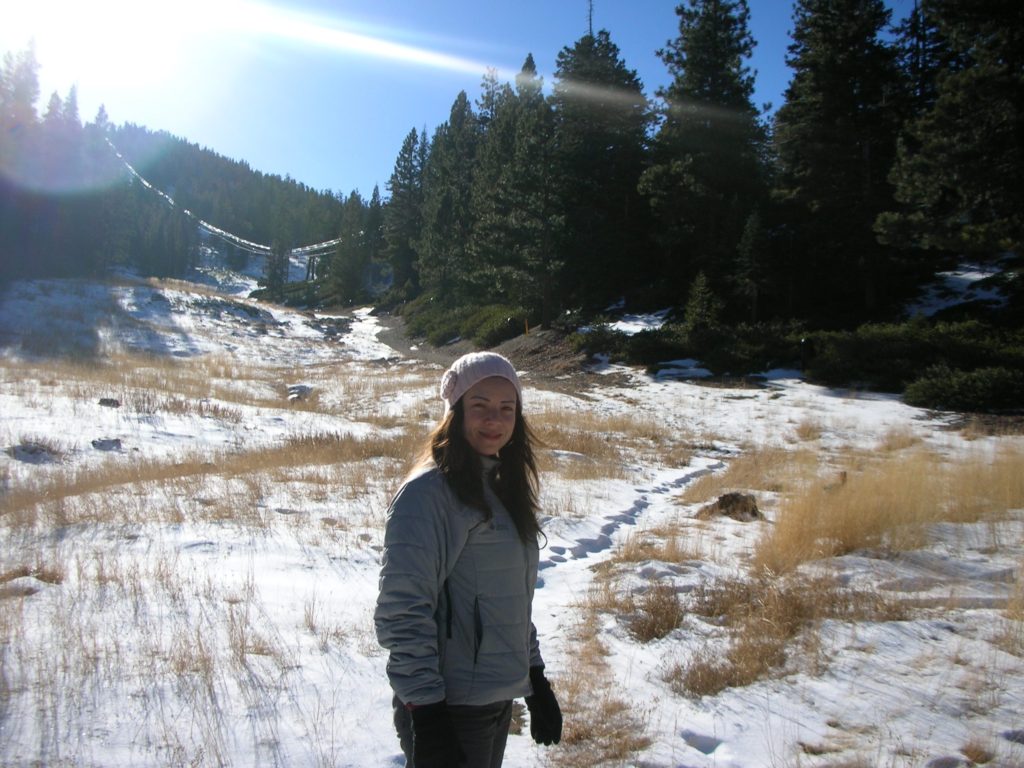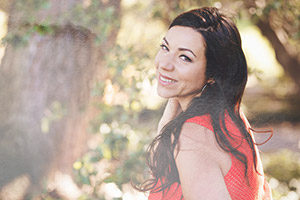Why you don’t need to be an expert
“Chasse-neige! Chasse-neige!” they called out. I pointed my skis toward each other to slow down but somehow the only way I could stop was to throw myself onto my side, then dust the snow off. It was my first time skiing (years later my husband and I would learn to snowboard) and without any lessons, I rode up the ski lift in this small French Alps town where people take the sport very seriously.
My dear friend Alvarro sat on one side of me and his boyfriend, Arnaud who had been skiiing these slopes since he was a child, on my other side. How bad could it be? There was a four-year-old with his parents just ahead of us and a couple that looked to be in their 80’s behind us.
I was prepared for a gentle bunny slope but when I got to the top of the mountain, saw that the “bunny slope” was actually a zig zag across what looked like a death slope, otherwise known as the double black diamond. There was only one way down to hot chocolate and warm wine. I did my best and had to trust that the experienced skiers had the skill to avoid me as they darted down the steep mountain.
We had assumed that Arnaud with all of his experience and knowledge would be my teacher. While both my friends tried to be helpful, Alvarro who had only recently picked up skiing, was able to explain what I needed to know, because he could still see things from the beginner perspective and break it down in a way that I could digest. I learned something important that day other than just how much easier skiing looks when other people are doing it.
I’ve spent a lot of time acquiring knowledge, skills and experience which is important but sometimes we hold ourselves back believing we must become experts before getting out there.
We often try to prove our value to ourselves or others through these things and it’s easy to get stuck in the self-improvement cycle, waiting too long until we are ready or losing touch as we pile on the credentials.
I see this a lot with women. I have seen it in myself. And the world doesn’t want to wait for what we’ve got. There is value where we are now. There are gifts in seeing from our eyes in this moment. Even a beginner has something to offer and may even be the best teacher.

I have brought these lessons into my teaching.
1) We don’t always need to know it all or to be the best expert to share with others. What we need is to be able to facilitate an experience. Wherever we are in this moment offers a unique vantage point.
2) It’s not just about content or knowledge or information; it’s about delivery. Consider my motto, “It’s the how, not the what.”
3) There is benefit in choosing ground delivery. Accessing beginner’s mind is important. It’s useful to cultivate the ability to see things from the ground up in order to pass it on.
4) Being a teacher or guide is really about helping others make discoveries for themselves. Just because you have a strong yoga practice, doesn’t make you an instructor. Just because you are a doula, midwife or labor and delivery nurse, doesn’t make you a childbirth educator. Helping others goes beyond giving them information, assistance or modeling for them. Educere, the root of the word educator, means bringing forth [from within]. And guru, a Sankskrit word connoting teacher, is said to mean “dispeller of darkness,” implying that one’s light is already there. True learning comes from within.
On the flip side, teachers have sometimes been given a bad wrap. Consider the famous epithet, “Those who cannot do, teach.” While that may sometimes have some truth in it, there are some amazing teachers and coaches who can’t do backflips but help others to win Olympic Gold Medals in gymnastics. Yet, this would not be possible if they did not know their craft.
A balance of knowing and the ability to provide an opportunity for others to discover for themselves is important. While there are situations when someone needs to relate to someone who has had that experience, it is not always necessary for it to be firsthand. For example, a grief counselor may not have lost someone close to them but they have experienced many small losses in the course of being human. I know many amazing midwives who have never given birth and surgeons who have not been a surgery patient. There are ways to deepen and embody what we know. By doing this, we can be led by experience and translate it for others.
Sometimes we only need to be just ahead of someone else to help lead the way. It’s not necessary to wait until we know or have done it all to be of service. By being with your experience, you may open the door for someone else. Merci, Alvarro!
What makes my programs different?
1) See things from the expert and ground perspectives.
2) Experience practices and tools before and while applying them to others. Immersive and embodied learning.
3) Community and group support to lift each other up. Honor the wisdom that everyone brings. Be inspired by a diversity of perspectives.
Sign up
to learn more about my methods for embracing your authentic self:
Organized under Uncategorized. No comments.
 Hello. I'm Reise.
Hello. I'm Reise.